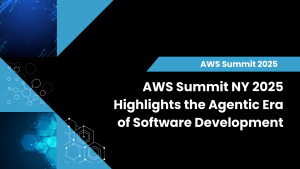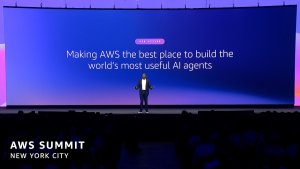Do enterprises really need chief artificial intelligence officers? In most industries, the correct answer would probably be no. For most businesses, AI may never rise to a level of strategic importance that requires a dedicated executive reporting directly to the chief executive.
Even so, some high-tech companies might want to consider it. Elevating an AI expert to C-level status, though often quite expensive, may become strategically necessary if a business’ survival depends on it. In those “bet the business” cases, it may make sense to appoint an executive to oversee an AI center of excellence, direct high-profile AI-based business initiatives, fund ongoing research and development into the enabling technologies and evangelize it among the lines of business.
Here’s a SiliconANGLE article from last fall in which Teradata Corp. marshals quantitative research to argue that the day is approaching when C-level AI-focused executives may become essential. And here’s a good interview of former Baidu Inc. Chief Scientist and AI guru Andrew Ng in which he discusses the strategic imperative behind appointing AI masterminds into this role:
Among the first companies to appoint chief AI officers may be tech companies in markets that have bet their futures on disruptive AI applications. In recent weeks, we’ve seen several prominent tech companies reorganize with an eye toward boosting their ability to deliver sophisticated AI-driven products across their solution portfolios:
- Apple recently hired John Giannandrea, former Google Inc. chief of AI and machine learning, to take charge of its cross-product AI strategy. He will serve in role equivalent to a chief AI officer, becoming one of 16 executives reporting directly to Apple Inc. CEO Tim Cook. But it’s not clear yet what his priorities or responsibilities will be, or the size of the organization and budget he will control. He is likely to focus on boosting privacy protection in the AI that’s built into Apple’s products, though that would fall short of a strategic vision to innovate in devices, online services or other segments in which his new employer competes.
- Google is creating a new business unit dedicated to integrated AI across its product portfolio. This group falls under Jeff Dean, co-founder of its Google Brain research group. In a sense, Dean might be equated with a chief AI officer, essentially filling a strategic void created by Giannandrea’s recent exit. However, there’s no word on whether he reports directly to Google CEO Sundar Pichai. Regardless, he does not report directly to Larry Page, CEO of parent company Alphabet Inc.
- Microsoft Corp. is moving further away from any notion of converging all AI responsibilities in one senior-level position. It is splitting out its AI efforts into separate groups focused on research, cloud platforms, runtime and development platforms, business applications and mixed reality, respectively. The existing AI + Research group, which infuses key AI technology advances across all product teams, will continue to be led by Harry Shum, who will also co-head an AI ethics committee with Microsoft’s chief legal officer. Scott Guthrie’s existing Cloud product group will add AI platforms, with a focus on infrastructure, runtimes, frameworks, tools and higher-level services around perception, knowledge and cognition. The new AI Cognitive Services & Platform, under Eric Boyd, will drive Microsoft’s AI Platform, AI Fundamentals, Azure ML, AI Tools and Cognitive Services. The existing Business Applications Group, under James Phillips, will add the Customer Service, Marketing and Sales Insights teams and focus on AI-enabling their solutions. And the new AI Perception & Mixed Reality team, under Alex Kipman, will bring together all Microsoft speech, vision, mixed reality and additional perception capabilities into one team.
Considering the current vogue for this technology as a competitive differentiator, it may only be a matter of time before one or more high-profile companies appoint an all-powerful “AI czar.” Though it’s not an enterprise solution provider, Facebook Inc. may have already done just that by placing all C-level AI oversight with lead researcher Yann LeCun.
However, even if every company were to appoint a C-level AI mover-and-shaker, the plans would come to nothing without people to build the deep learning, natural language processing and other key elements of the AI applications they propose. Rather than focus on top-down strategic initiatives, solution providers are more likely to prioritize bottom-up skills development efforts to build the AI developer ecosystems.
Here are some recent industry initiatives in that regard:
- Apple is reportedly on a hiring spree to bring more AI developers onboard to beef up its Siri digital assistant’s conversational user interface capabilities, though they could benefit from someone in a higher-level cloud infrastructure role to build out the backend needed to compete head-on against Google, Microsoft, Amazon.com Inc.’s and IBM Corp.’s more sophisticated AI offerings.
- Amazon, though it hasn’t undertaken any major AI-related reorganization, is recruiting four times as many AI developers for its Alexa conversational UI product than Apple is for Siri.
- Microsoft is opening up its internal AI training to the public. This is part of a broader AI ecosystem push that includes the developer-focused AI School, which provides online videos and other assets to help developers build AI skills. Furthermore, it includes general educational tools for aspiring AI developers and specific guidance on how developers can use Microsoft’s AI tools and services.
To the extent that chief AI officers begin to emerge from the expanding AI developer ecosystem, they’re likely to spring up first at the product level, along the lines of how Microsoft has been weaving this technology in its commercial applications. As these product-level AI gurus prove out the success of their offerings, they’re like to be elevated to a cross-product coordinating role, similar to the new responsibilities of Jeff Dean at Google or, it’s to be assumed, Giannandrea’s likely scope at Apple.
Here’s a clip of Google’s Ron Bodkin on theCUBE, SiliconANGLE Media’s mobile video studio, at the recent Big Data SV 2018, commenting on Dean’s acknowledged leadership role in that company’s AI initiatives:


